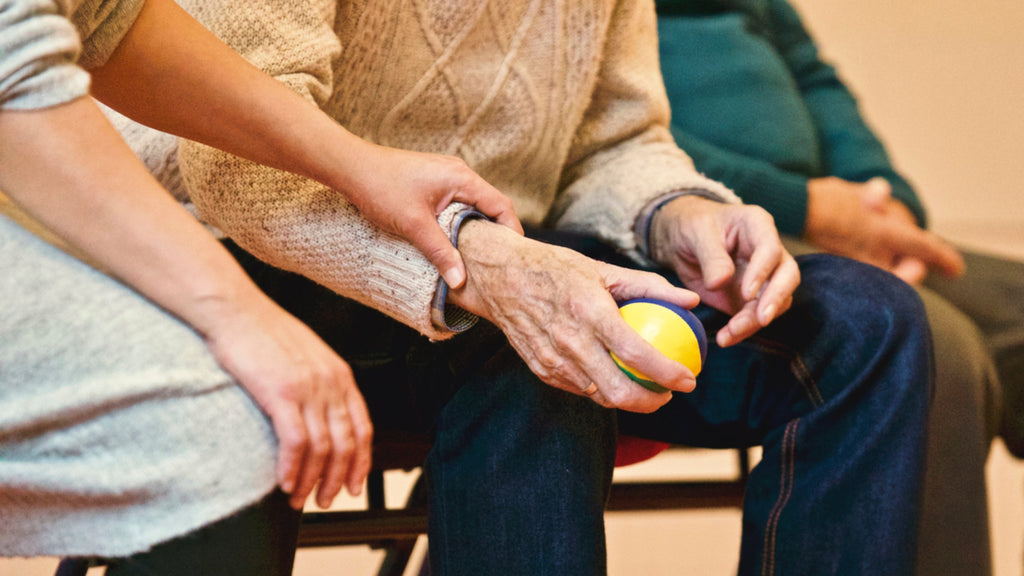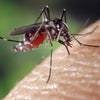CBD and Parkinson's Disease

CBD is proving more and more to have massive health benefits. From studies to anecdotal evidence, all signs are pointing to CBD’s enormous potential in the healthcare industry. One of the areas where CBD is being looked at as a viable treatment by scientists and healthcare professionals is with Parkinson’s disease.
What Is Parkinson’s Disease?
Parkinson’s is a chronic, progressive neurodegenerative disease that affects both motor and non-motor bodily functions. It’s estimated that between seven and ten million people are living with the disease worldwide, making it the second most prevalent neurological disorder after Alzheimer’s disease. Parkinson’s is considered to have no cure, and the cause of the disease remains largely unknown to doctors and medical researchers.
Symptoms or effects of the disease range from the commonly associated tremors and uncontrollable movements, to non-motor symptoms like apathy, depression, constipation, sleep behavior disorders, loss of sense of smell, inflammation, and cognitive impairment.
Though the cause is largely unknown, we know that Parkinson’s includes the progressive loss of dopaminergic (dopamine-producing) neurons, which, consequently, causes impairment of motor control. And although not curable, treatments to help keep the disease in check involve the use of dopaminergic medications to combat the low levels or absence of dopamine in the brain.
CBD and the Brain
As mentioned in our article, Health Benefits of CBD, CBD is a cannabinoid that interacts with the body’s endocannabinoid system, a biochemical communication system within the within your body’s wider nervous system. This communication highway is full of receptors and transmitters that work to regulate our physiology, mood, and everyday experience.
Due to CBD’s interaction with the body’s nervous system, along with its potential effect on dopamine levels in the brain, and because of the success it has had in treating epileptic seizures, there has been much interest in learning whether CBD could be an effective treatment for Parkinson’s. The preclinical research and the several studies that have been conducted have aimed to see whether CBD can combat the disease itself, whether it can improve the quality of life for those suffering from it, or both.
CBD and Parkinson’s
A study undertaken by Maureen A. Leehey, MD, Professor of Neurology and Chief of the Movement Disorders Division at the University of Colorado in Aurora, sought to test the effects of CBD on the motor and non-motor symptoms of Parkinson’s disease, as well as evaluate the tolerability and safety of the substance.
Over a 31 day treatment period, qualifying patients were given increasing daily dosages of CBD and observed to see the effects it had on their symptoms. The result was that CBD was shown to decrease the Unified Parkinson’s Disease Rating Scale (UPDRS), the scale that is used to track the course of the disease, from an average of 45.9 at baseline to 36.4 at the final visit. UPDRS motor score significantly decreased from 27.3 to 20.3. The mean rigidity subscore significantly decreased from 9.14 to 6.29. CBD was also shown to possibly reduce the pain and irritability associated with Parkinson’s.
So what do these results mean? Well, according to doctors behind this study, it means that CBD is tolerated, safe, and has beneficial effects when it comes to Parkinson’s disease. More importantly, perhaps, is that the promising findings of this study mean that Dr. Maureen A. Leehey is going to conduct further, larger studies in order to establish and pinpoint the effects that CBD can have on Parkinson’s disease.
Other clinical trials studying the effects of CBD and THC on Parkinson’s patients, published by the National Center for Biotechnology Information, found that psychotic symptoms associated with the disease decreased, as well as REM behavior sleep disorder symptoms. Results of a third study showed that, while motor scores did not improve, the overall quality of life scores did.
In another, patients at a movement disorders center were asked to fill out an anonymous questionnaire about their experience with cannabis. Of the 84 patients who admitted to using cannabis, 39 described mild or substantial improvement of Parkinson’s disease symptoms, including tremor and dyskinesias.
The Future of CBD and Parkinson’s Disease
According to Project CBD, almost all modern scientific research on the topic supports the notion that cannabis could be beneficial in reducing inflammation and assuaging symptoms of Parkinson’s, as well as mitigating disease progression to a degree.
They also point out that federally-funded preclinical probes have documented the robust antioxidant and neuroprotective properties of CBD and THC with “particular application … in the treatment of neurodegenerative diseases, such as Alzheimer’s disease, Parkinson’s disease, and HIV dementia.”
But what’s important to keep in mind is that most of the work and research that has been done is just preliminary. And though there is increasing clinical research and ample anecdotal evidence by Parkinson’s patients that CBD has positive effects on their symptoms and quality of life, there has simply not been enough work done yet to say anything with a 100% guarantee.
What’s probably the most significant thing to come out of the research and anecdotal evidence so far is that is has greatly encouraged researchers to take further steps to really learn how effective CBD is at treating Parkinson’s disease.
With that said, this is still very exciting! CBD is completely non-toxic in humans and does not produce any psychoactive effects, or any serious, known side effects. This means that if it proves to effectively combat Parkinson’s, and possibly other neurological disorders, CBD would be a superior alternative to many current treatments which produce side effects and present potential dangers. Of course, if you make the choice to add CBD to your current Parkinson’s regimen, it’s always smart to consult your doctor first.
The sky really seems to be the limit for CBD and its potential to treat disorders and diseases like Parkinson’s. There will most likely be more on this topic to come.










